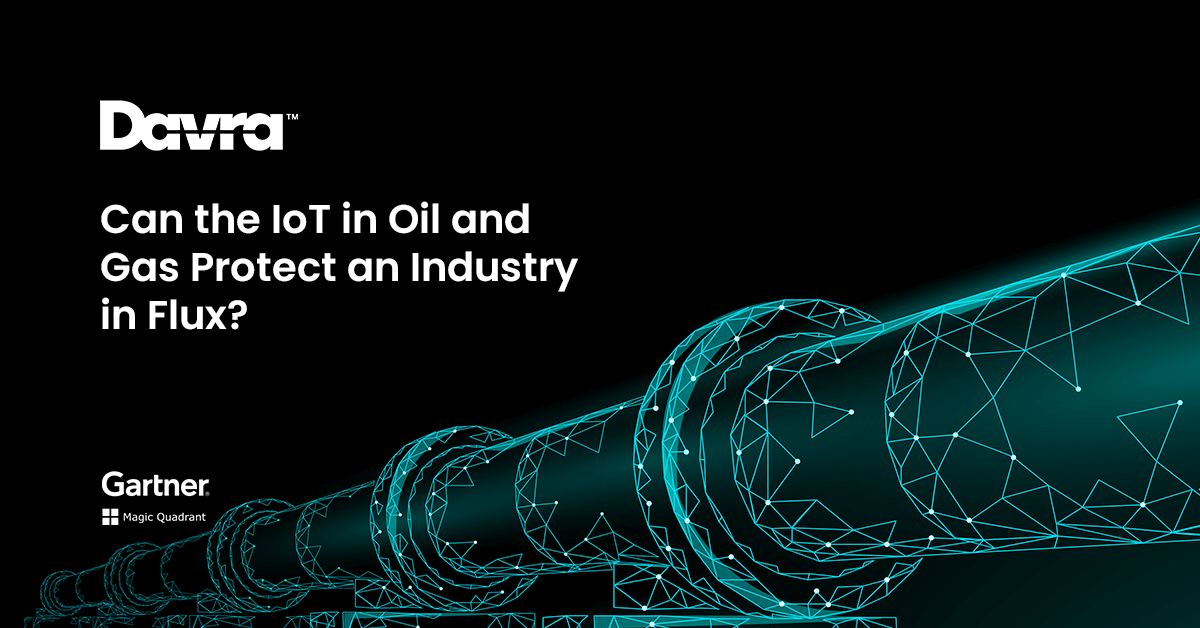IoT in Healthcare Use Cases eBook
Download Your Free IoT in Healthcare Use Cases eBook
Read More


As much as people recognize the need for change, fossil fuel usage isn’t exactly on the out. While solar, wind and other forms of energy are quickly rising to the forefront of the public consciousness, most of humanity still relies on the oil and gas industry. This doesn’t, however, mean that the sector is somehow unassailable.
The oil and gas sectors face incredible challenges that might induce most enterprise leaders to pack it in and head home. Whether you’re able to stick it out and make a place for yourself in the face of some of the world’s harshest operating conditions could depend on how you use your Internet of Things, or IoT, infrastructure.
The spread of IoT in oil and gas isn’t some fluke. This field is adopting connected computing platforms for a range of intelligent reasons. One of the biggest motivators is the fact that today’s oil and gas market is nothing like what it was a few short decades ago.
You don’t have to agree with environmental activists to recognize that there’s been a huge shift in perception. Although the public may still have plenty of tolerance for oil and gas companies, people hold them to high standards. As people begin to demand more rights to healthy living spaces and ethical consumer options, they’re far less inclined to forgive those who compromise or squander humanity’s limited shared resources.
The stakes associated with operating in remote locations, exploiting assets efficiently and keeping employees safe have always been high. The big difference is that the hazards and bar for acceptable practices have practically ascended into orbit.
Oil and gas jobs aren’t exactly cushy. This field is strenuous and can be highly hazardous. While companies love to attract potential employees with high wages and benefits, the greatest hurdle often lies in merely overcoming their preconceptions about the nature of the work.
Enterprises that remain unaware of the factors that cause accidents will have a hard time convincing employment candidates that any amount of compensation is worth the risk. Those with track records of poor governance can also paint themselves in a pretty bad light should they get taken to court by a former worker.
Have you taken sufficient precautions to avoid a catastrophic uncontrolled release event or horrific employee injury? If not, your enterprise could easily become the ideal fodder for a sensational news exposé — and not the kind where you hit a few home runs in response to a cheery reporter’s softballs.
Oil and gas companies that make mistakes or let inefficiencies go unchecked invite toppling shareholder confidence. Investors put a lot on the line to fund exploitation activities, making them noticeably less inclined to tolerate poor performance.
Regulations grow more onerous as time goes by. It’s also worth noting that, in political terms, no good lobbying action goes unpunished. Most back-door buy offs come to light eventually, and they contribute to even more restrictive laws upon their disclosure.
Businesses that think they can overcome all challenges simply by working with politicians might be surprised to discover how quickly such allies change sides to stay in favor with their constituents. Even more pressing, those that fail to operate by the books run the risks of massive fines that might put them out of business before they ever get a chance to find a friendly ear.
The fossil fuel industry has always been highly exploratory. From uncovering new resource pools in far-off places to creating new technologies and operating models, this industry is a true font of innovation.
Oil and gas companies that want to continue this trend need to think more carefully about how they use learning. This means not only reconsidering the way you employ existing data to make sound business decisions but also reevaluating the fundamental tenets of your enterprise’s relationship with information.
One great way IoT in oil and gas promotes outside-the-box thinking is by offering more data sources to decision-makers. For instance, although most companies recognize the value of routine preventative maintenance checks, they tend to be limited by the very equipment they want to monitor! A traditional check valve, drill or similar piece of hardware might include electronic sensors, but unless your employees are pretty handy, you have to settle for whatever feedback the manufacturer makes available.
The Industrial Internet of Things exemplifies universal monitoring convenience. You can create a connected device from anything, and you never have to make do with subpar data content. You get to choose what kind of information your sensors send home, so monitoring situationally relevant operating parameters is no sweat. Enterprises can readily accomplish once-unheard-of tasks like
• Tracking vibrations to anticipate when motorized equipment might fail or need a check,
• Monitoring worker life signs in inaccessible work zones to respond to emergencies faster, cut down on liabilities and enhance telemedicine services, and
• Observing pipeline flow rates, tank levels and other operating factors in realtime to ensure the best allocation of resources and optimal system performance.
From mines and rigs to tank farms and pipelines, natural resource facilities are highly reliant on geography for their sustained profitability. Terrain conditions, weather, and other location-dependent environmental factors can decide the fate of an operation no matter what you have to say about it.
These unpleasant certainties make it imperative to use your data as intelligently as possible. Because the IoT integrates seamlessly with progressive web technologies, you can gain insights that map themselves out. Dashboards and other tools let you engage with your facilities as a whole to instantly assess how and where assets travel.
The IoT facilitates more sound information management principles in organizations where accurate knowledge can be as valuable as gold. Working within uniform frameworks, such as application enablement platforms, makes it possible to institute data formatting and analysis standards that you can modify from the top. Well-planned IoT systems can also give your recordkeeping compliance stance a life-saving booster shot.
Many oil and gas enterprises have sought to modernize their business models by investing in alternative and decentralized energy production. One of the hallmarks of such ventures, however, is the fact that they inherently demand smart technology, whether it takes the form of solar panel power quality monitors, automated distribution networks or wind turbine speed regulators.
IoT technology is a natural fit for these kinds of projects. In addition to improving transparency at low-personnel facilities, linked sensors can prompt high-level insights, such as how to switch an existing business model over to a greener alternative.
Even though you have to accept some uncertainty in the natural resource industry, the IoT can help you establish a rock of stability. Unlike an oil well that might someday dry up, connected computers will provide feedback no matter whether they’re embedded on the seafloor or mining asteroids in deep space.
The IoT keeps producing information no matter where you take your company, so it might be wise to ensure you’re ready to receive it. Find out how to implement more precise, profitable operating practices by talking to our IoT gurus today.
Brian McGlynn, Davra, COO
Download Your Free IoT in Healthcare Use Cases eBook

Davra IoT is the only Industrial IoT Platform Available on AWS Marketplace
Read MoreThe Collaboration of Humans & Robots Has Created The Cobot
Read More